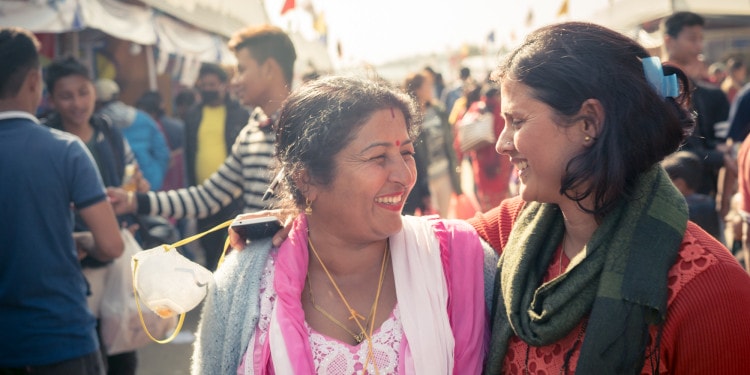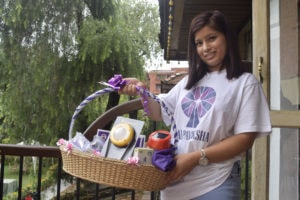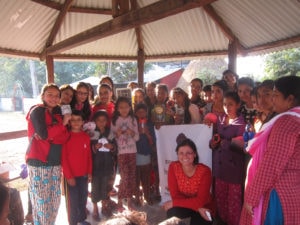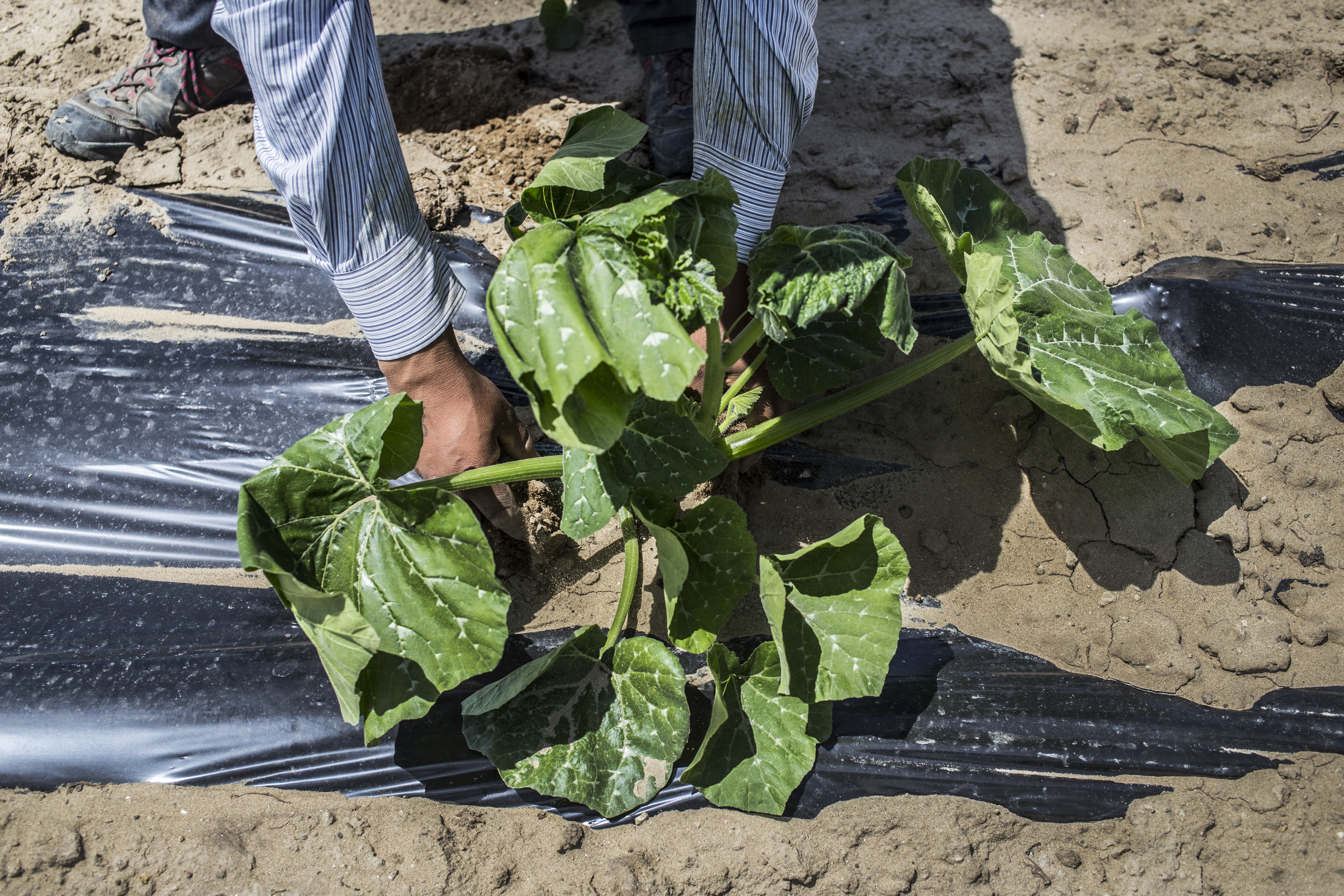In celebration of International Women’s Day 2018, a group of outstanding organisations working to empower women within the energy access sector are collaborating on a series of articles. We will be sharing stories on women’s empowerment from around the globe over the course of this month. Today, Anya Cherneff from Empower Generation discusses her organisation’s work in Nepal.
The theme for this year’s International Women’s Day is #PressforProgress, a “call-to-action to press forward the progress of gender parity” and “to motivate and unite friends, colleagues and whole communities to think, act and be gender inclusive.” In veneration of International Women’s Day today, US Women’s History Month, and in recognition of all women everywhere, I’m telling stories of sisterhood: Women empowering others to rise up and cross physical, cultural, racial, religious and gender barriers to achieve success in business, at home and in their communities. I work for approximately one billion global citizens living without electricity, and over three billion who are cooking over an open fire to feed their families every day. The fact that women suffer the most from energy poverty is loudly touted within the impact sector. Commercial solutions that do not include women at all levels of business will fail, but how do you effectively recruit and provide a supportive environment for women and other underrepresented groups to thrive? These are the stories of the people I work for and it is my great privilege to share them with you.
In Nepal my partner, Sita Adhikari and I, are growing a network of franchises rooted in the rural communities where they work. Nepal ranks 144 out of 188 on the 2016 United Nations Gender Development Index (GDI). It has made some strides in instituting laws to reach gender parity, but rural Nepalese women still face many challenges in gaining equal access to economic opportunities due to lower education levels, an illegal but pervasive dowry system, a patriarchal society, and systematic poverty. Disturbingly, less than 7 percent of women are included in Nepal’s formally recognized workforce.
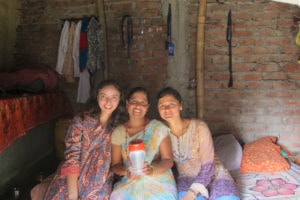
Photo Credit: Empower Generation
However, there are signs of hope. Rural Nepalese women are the most powerful activists progressing the gender equity agenda. They are providing for their families by working on their farms or in family-owned shops. They are active in their communities, leading community-based nonprofits, and extending support to marginalized people. Despite these contributions to the economy and their communities, the majority of this work is unpaid and unrecognized. This was the case with Sita Adhikari, Co-Founder of Empower Generation and CEO of the last-mile distribution company, Kalpavriksha, when I met her in 2010.
Sita grew up in a progressive rural family. She was encouraged to study in Nepal’s capital, Kathmandu, far away from her home and received her master’s degree in economics. Sita was also able to marry the person she fell in love with, which is very rare in Nepal with most marriages being arranged. Sita recognized her privilege to grow up in a family that believed in her, supported her education, and gave her freedom to choose her own husband.
When Sita finished her graduate studies, she went back to their village in Jhuwani, Chitwan. Sita managed her family’s fish farm and other entrepreneurial ventures that contributed to the family budget but she was never paid a salary or was recognized as the legal owner of a business. After she helped to build a community library in Jhuwani, Sita observed that most of the users were men. Sita created women’s reading groups and made it mandatory for the library to obtain a wide range of books so they would interest everyone. The reading groups she created developed into a public speaking club, and eventually into the Jhuwani Women’s Savings and Credit Cooperative, a women’s microfinance fund and the most successful program offered by the library.
IN THE PHOTO: Kalpavriksha products. Photo Credit: Empower Generation
Based on her own experience and through many other women at the cooperative, Sita saw how difficult it was for women to earn money, independent from their husband’s or extended family’s income, regardless of whether they came from a progressive family. She herself experienced how not earning her own income limited her personal decision-making power in the household, and a lowered perception of her in society. She thought about the many rural Nepalese women who did not have an education or agency within their own families and became motivated to find a way to improve their situation. A chance meeting I had with her launched her on her path to becoming an entrepreneur and using her business to empower more women to start their own businesses selling life-changing products such as solar lights, clean cookstoves, and water filters to remote customers.
Sita started her business, Kalpavriksha, in 2012 at the same time I was inspired to found Empower Generation, and a partnership between the two was a natural fit. Her vision was to employ at least 100 women in a company that she owned. Today, Sita is the sole owner of Kalpavriksha, a wholesale distributor of life-improving products and the manager of a franchise network of 20 businesses and their 300 sales agents. She has become a recognized expert on energy access and inclusive workforce development and is frequently the only women on a panel or in the room for high-level energy access meetings. As Empower Generation’s Country Director, Sita helped 23 women entrepreneurs launch 20 businesses and trained more than 1000 women and girls in sales and marketing. Providing entrepreneurial and employment opportunities to underserved groups by offering business skills training, mentorship, and capital, with Empower Generation’s support, continue to be Sita’s focus and passion. She says, “It is necessary for women to earn an income. Unless they have money in hand, women’s empowerment won’t succeed. They should not be seen as beneficiaries; they should be respected and promoted as stakeholders.”
IN THE PHOTO: Kalpavriksha team. Photo Credit: Empower Generation
On International Women’s Day, we honour women like Sita, who work every day to advance gender parity. They do this by creating platforms for others to develop their voice and agency and by bravely leading through the example of refusal to accept the patriarchal status quo. Women helping women to rise in a united sisterhood is a theme we should all embody, not just on March 8, but consistently and continually throughout the year. Today, let’s all think about the people in our lives who are fighting for progress and could use an ally. Let them know we stand with them.


